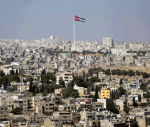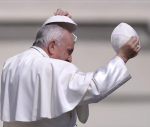You are here
Washington’s Message: The NATO Summit’s strong stance against China and Russia
Jul 15,2024 - Last updated at Jul 15,2024
The recent NATO summit in Washington concluded with a powerful and unequivocal message to the global community, particularly directed at China and Russia. As the alliance celebrated its 75th anniversary, it emphasised the evolving geopolitical landscape and the strategic adjustments required to counter emerging threats. The final communiqué from the summit underscored NATO's unity and determination, opening a new front in the data war with Russia and China.
A strong message to China
NATO's Secretary General Jens Stoltenberg delivered a firm warning to China, urging it to cease its support for Russia's military efforts in Ukraine. The final statement highlighted NATO's concerns regarding China's expansive ambitions, nuclear capabilities and space technologies. The alliance accused China of aiding Russia by providing dual-use materials, including weapon components and raw materials essential for the Russian defense sector. This definitive stance against China signals a significant shift in NATO's strategic focus, stressing the need to counter Beijing's growing influence.
The final statement of the summit provoked a strong reaction from China, which vehemently denied the accusations of supporting Russia and supplying it with weapons. Beijing called on NATO to stop "inciting confrontation" and criticised the alliance for its Cold War mentality and hostile rhetoric. China's response highlighted the ongoing tensions between the major powers and the complex dynamics of global geopolitics.
The NATO summit also emphasised the alliance's expanding strategic interests in Africa and the Southern Mediterranean. Item 32 of the Washington statement underscored the importance of enhancing partnerships with countries in the Greater Middle East region. The statement highlighted the significance of security and stability in Africa and the Middle East, noting that conflicts and instability in these regions directly affect NATO members and their partners. It emphasised the establishment of a NATO liaison office in Amman, Jordan, and the expansion of support for Iraqi security institutions as critical steps. Furthermore, a special representative for the Southern Neighbourhood will be appointed to coordinate these efforts, demonstrating NATO's commitment to collaborating with partners in the Middle East and Africa to address common challenges and counter terrorist threats.
NATO members announced plans to enhance the alliance's presence in the Middle East and Africa to support regional peace and stability. The final statement indicated that NATO's southern neighbourhood provides opportunities for cooperation on issues of common interest. The alliance adopted an action plan to strengthen its southern orientation, with plans to open an office in Amman, Jordan, and continue collaboration with Iraqi authorities.
The Ukraine conflict remained a focal point throughout the summit. NATO leaders reiterated their commitment to supporting Ukraine, pledging additional aid and appointing a high-level representative to strengthen relations with Kiev. The alliance condemned Russia's actions in Ukraine, particularly the targeting of civilian infrastructure, and expressed solidarity with the Ukrainian people. However, the summit's focus on Ukraine also highlighted the selective attention of NATO leaders, as the ongoing humanitarian crisis in Gaza received minimal attention.
The Washington summit was marked by profound sympathy for Ukraine, with leaders expressing their support for the Ukrainian people and condemning Russian violations of international humanitarian law. In stark contrast, the plight of Gaza's residents, who have endured months of violence and suffering, was largely ignored. Despite calls from demonstrators outside the summit for an end to the war in Gaza, NATO leaders remained silent on the issue, highlighting a disparity in the alliance's humanitarian concerns.
The presence of over 2,500 journalists at the summit underscored the importance of the media in shaping global narratives. The extensive coverage of the Ukrainian conflict contrasted sharply with the limited attention given to Gaza. This discrepancy raises questions about the role of the media in highlighting humanitarian crises and the impact of media coverage on international policy decisions. A more balanced media approach could potentially bring greater attention to the suffering in Gaza and other overlooked conflicts.
As China was absent from the Washington summit, Moscow announced measures to contain the threat posed by NATO. Kremlin spokesman Dmitry Peskov stated that NATO, concluding its summit in Washington, is now “fully involved in the conflict in Ukraine”. He added, “This is a very serious threat to national security that will force us to take deliberate, coordinated, and effective measures to contain NATO.” Peskov criticised NATO's expansion and the inclusion of Ukraine in the alliance, labelling it an unacceptable threat. He emphasised that NATO’s actions reflect a preference for confrontation rather than peace and security.
While no Arab countries participated in the summit, the establishment of the first NATO liaison office in Amman, Jordan, was announced. This move aims to enhance cooperation with the alliance, focusing on combating cross-border threats such as terrorism and violent extremism. The decision to establish this office was initially recorded at the NATO summit in Lithuania last year. NATO views this office as a crucial step in strengthening partnerships and addressing regional security challenges.
NATO countries reaffirmed their commitment to defense spending at a level of no less than 2 per ent of GDP. The statement emphasised the need for increased efforts to meet obligations as NATO allies. The alliance also expressed full support for Ukraine's integration into the Euro-Atlantic community and NATO membership, conditional on meeting the required criteria. Moreover, the summit decided to establish a NATO Security Assistance and Training Mission for Ukraine to coordinate military supplies and training.
The NATO summit in Washington sent a clear and unequivocal message to China and Russia, marking the beginning of a new phase in global geopolitical competition. As NATO expands its strategic focus to include Africa and the Southern Mediterranean, it must also address disparities in its humanitarian concerns. The selective attention to certain conflicts over others highlights the need for a more balanced approach to global security and humanitarian issues. The summit's outcomes will shape the future of international alliances and partnerships, as NATO navigates the complexities of a rapidly changing world. They way China and Russia would react to NATO messages can be a turning point in human history.













Add new comment